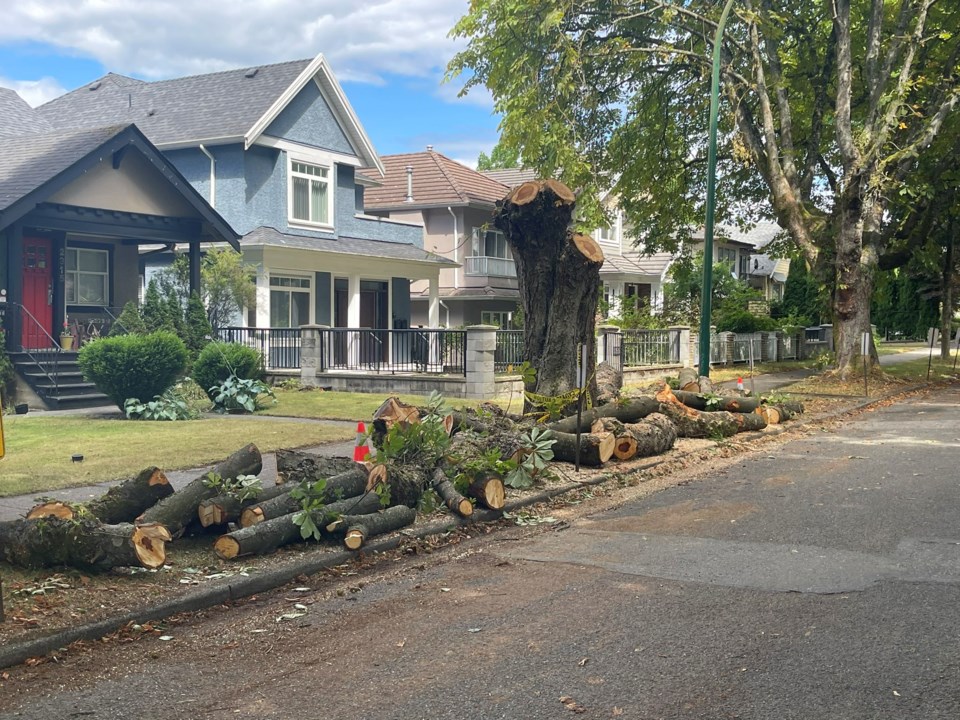There are two kinds of chestnut tree species that grow in Vancouver.
One is edible, and the other is poisonous. Eating the latter can cause digestive problems such as abdominal pain, nausea, vomiting and throat irritation.
The horse chestnut tree is the most common in the area. It flowers between April and June, has large five-limbed leaves, and the fruit is round and spherical with a husk bearing few, thorn-like spines.
They're often seen towering over boulevards and residential streets in Vancouver.
One resident shared concern over the cutting of an allegedly century-old chestnut tree, alleging that the City of Vancouver is doing so "because it’s supposedly dangerous" on Twitter.
Others chimed in noting that the mature trees aren't suitable for residential neighbourhoods due to the heavy chestnuts that fall onto cars (sometimes making dents) and residents from the sky-high canopies and the slippery road conditions that fallen foliage creates in the fall.
All tree species have fruit; apple trees have apples, maples have winged samaras or "helicopter seeds," and horse chestnut trees -- which tower over residential streets and boulevards -- have hefty seeds in a bumpy husk, explains Reg Eddy, Urban Forestry Planner at the Vancouver Board of Parks and Recreation.
"Some tree species may not be as desirable on certain streets as others because of the way the fruit grows and falls, potentially creating a slipping risk – horse chestnut being an example of this," he adds.
Does the City cut down chestnut trees because of this? The Park Board explains that there's a different solution.
The Park Board's Urban Forestry team now plants a hybrid species of horse chestnut trees that is sterile and doesn't produce fruit is planted on boulevards as a means of maintaining the trees without the dangers posed by falling chestnuts and leaves.
The common horse chestnut tree is still planted in other parts of the city such as in parks.




